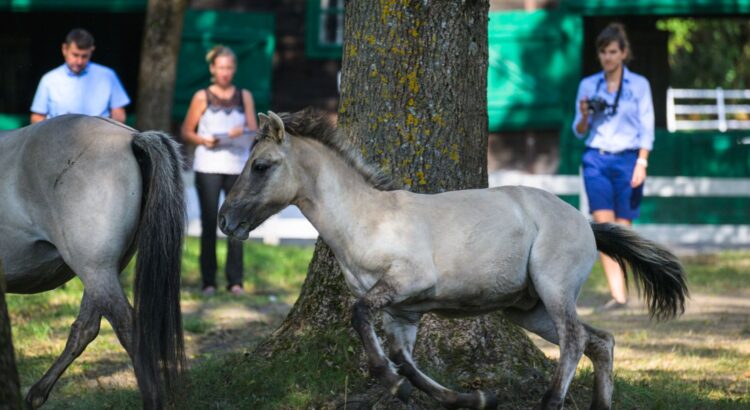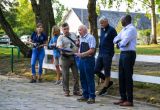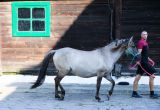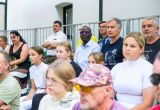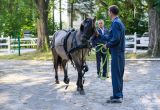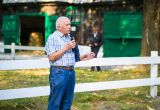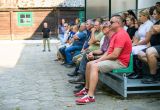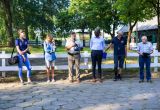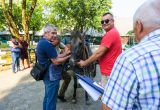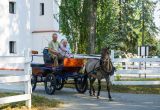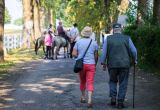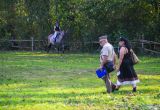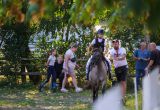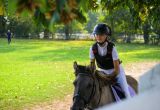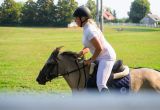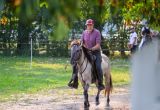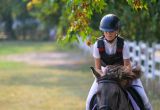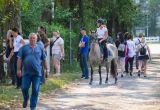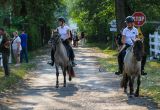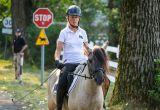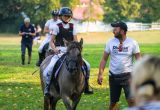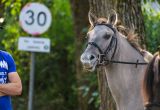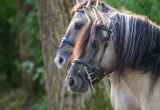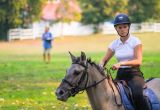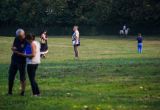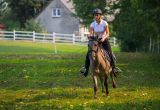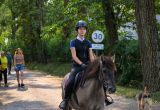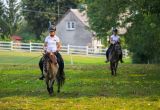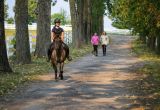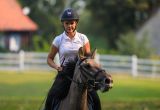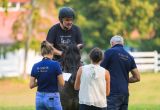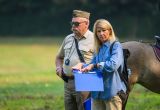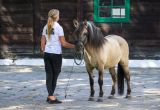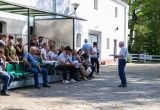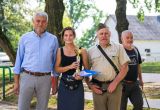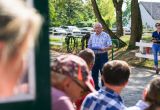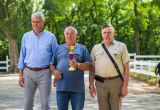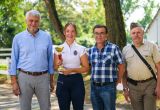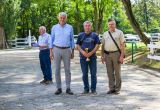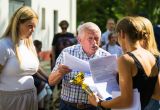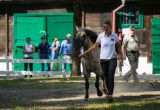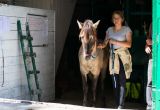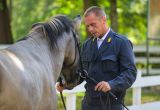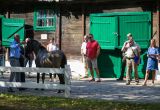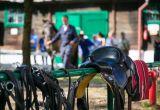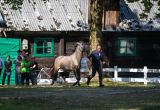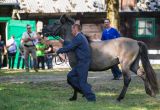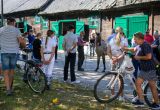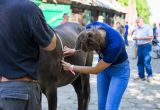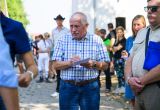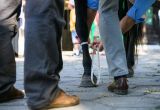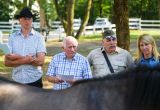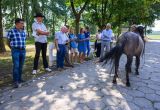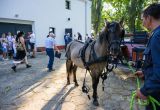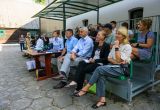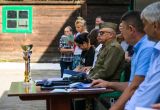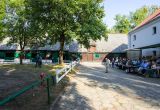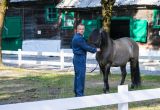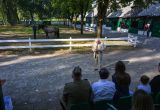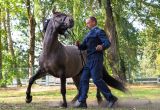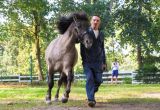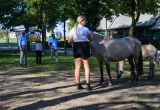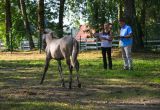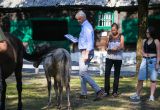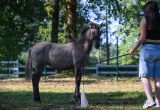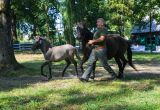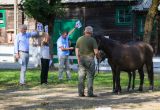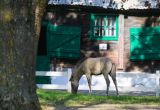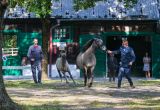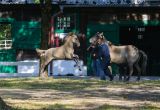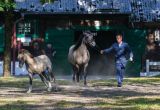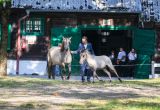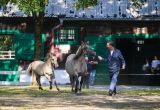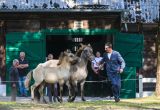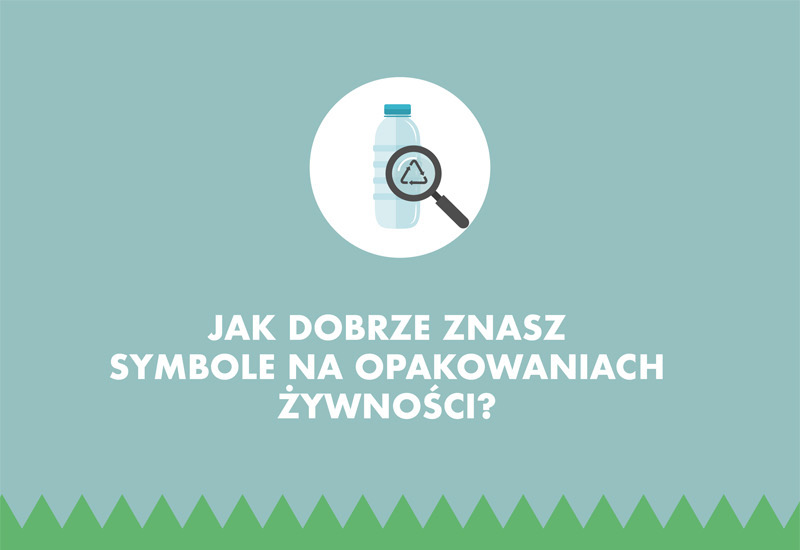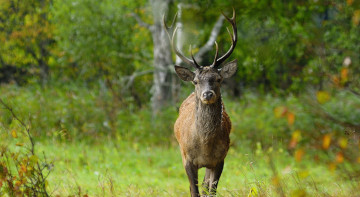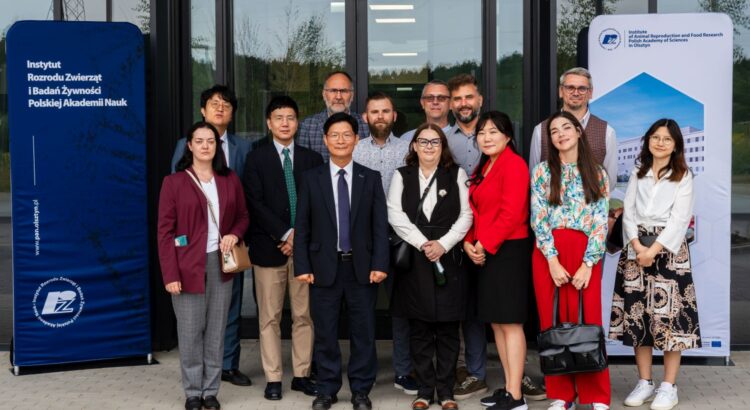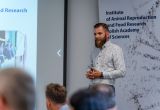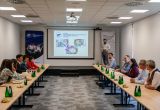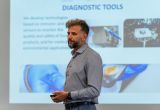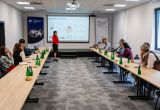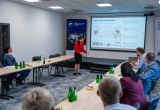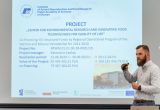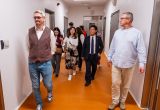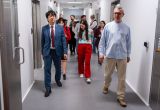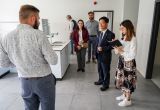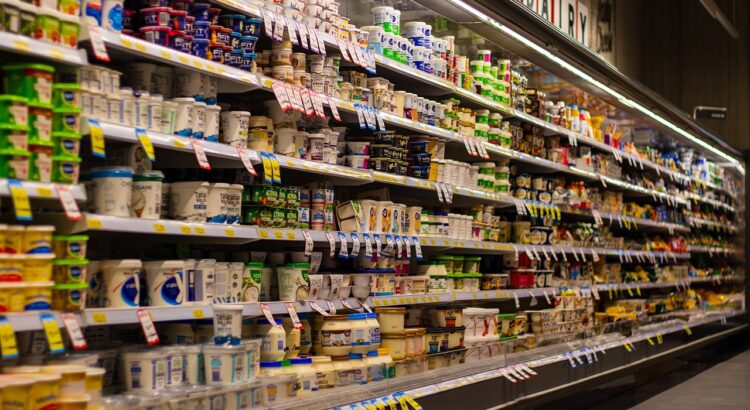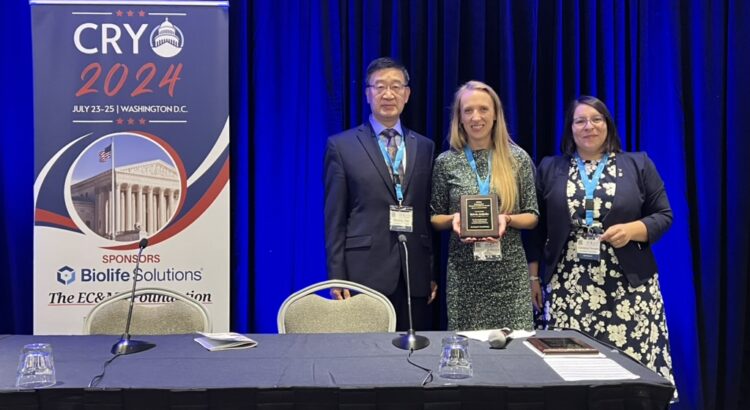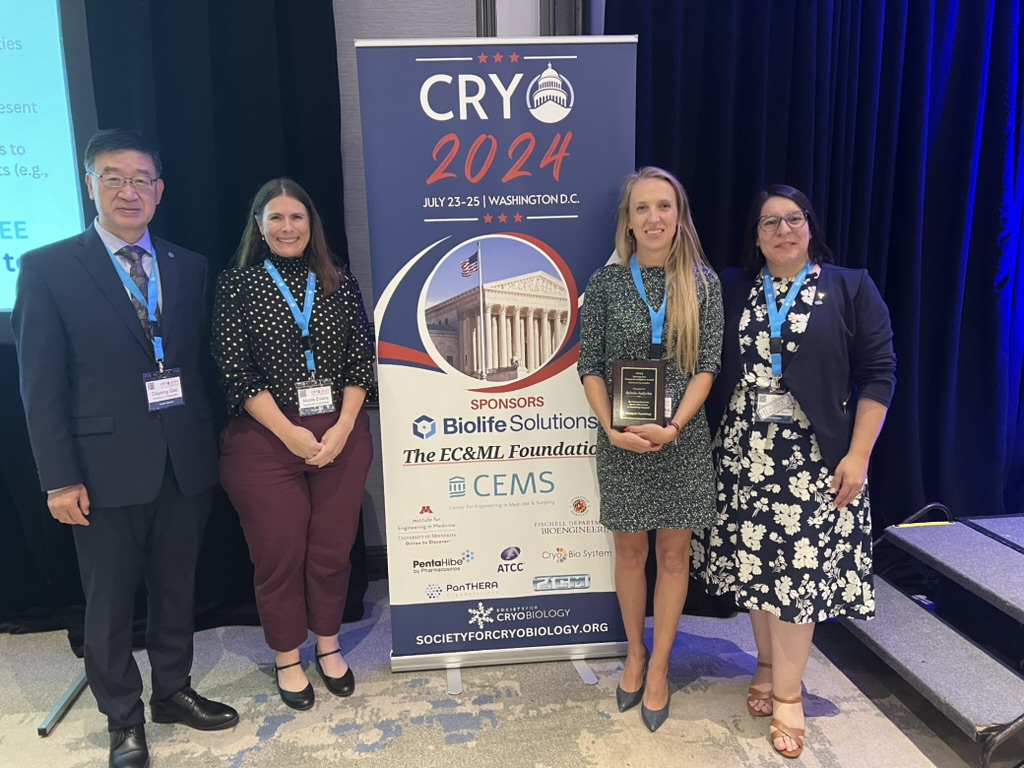Coroczne święto hodowców koni zyskuje popularność zarówno wśród ekspertów konika polskiego, jak i miłośników przyrody i polskiego dziedzictwa. Tegoroczna IX edycja odbyła się w dniach 6-7 września. Gospodarzem wydarzenia była Stacja Badawcza Instytutu Rozrodu Zwierząt i Badań Żywności PAN w Popielnie. – Cieszymy się, że z każdym rokiem weekend z konikiem polskim zyskuje kolejnych sympatyków – podkreślał podczas uroczystego otwarcia dr Mamadou Bah, kierownik stacji.
Uczestników wydarzenia powitali dr Mamadou Bah, kierujący stacją badawczą oraz mgr Aleksandra Szymborska, opiekująca się w Popielnie hodowlą konika polskiego – rodzimą rasą wywodzącą się od dzikich koni, tarpanów. Podczas uroczystego otwarcia podkreślano wagę imprezy, która z roku na rok cieszy się coraz większym zainteresowaniem publiczności. O prestiżu „Weekendu z konikiem polskim” świadczą również tegoroczni goście, a wśród nich przedstawiciele związków hodowców koni, członkowie Polskiej Akademii Nauk, reprezentanci jednostek naukowych i akademickich, również spoza regionu.
Pierwszego dnia przeprowadzono próby użytkowości koników polskich, do których zgłoszono łącznie 19 koni. Próby użytkowości to „egzaminy” opracowywane dla konkretnej rasy konia. Ich celem jest ocena wymagań użytkowych przyjętych dla danej rasy. Komisja zwraca uwagę m.in. na zachowanie konia, jego szybkość czy parametry fizyczne oceniane przy próbie wysiłkowej. Do próby użytkowości przystąpił również koń ze stacji badawczej w Popielnie. Ostatecznie 15 koni ukończyło próby z wynikiem pozytywnym. W próbach zaprzęgowych sukces odniosły 2 klacze oraz 1 ogier. W próbach wierzchowych udział wzięło 12 klaczy. Konie o najlepszych wynikach zostały wyróżnione pucharami.
W próbach zaprzęgowych szczególną uwagę zwrócił ogier Grosz P, który ukończył ją z oceną „bardzo dobrą”, uzyskując 34 punkty. Ogier, będący własnością i hodowlą stacji badawczej w Popielnie, otrzymał puchar za najlepiej wykonaną zasadniczą polową próbę zaprzęgową. Przygotowaniem konia oraz powożeniem zaprzęgu zajmował się pracownik naszej stacji, Jacek Lipka.
W skład powołanej przez Polski Związek Hodowców Koni (PZHK) w Warszawie komisji oceniającej weszli: Adam Domżała, dyrektor Warmińsko-Mazurskiego Związku Hodowców Koni, Jan L. Słomiany, przewodniczący Komisji Księgi Stadnej Konika Polskiego, prof. dr hab. Zbigniew Jaworski oraz Patrycja Wojciechowska z Działu Ksiąg Stadnych i Identyfikacji PZHK. Po zakończeniu prób komisja przeprowadziła również licencję oraz weryfikację koni. W wyniku oceny bonitacyjnej (czyli oceny wartości hodowlanej i użytkowej zwierzęcia) ogier Gambit P z hodowli stacji badawczej w Popielnie uzyskał 81 punktów. Warto zaznaczyć, że konie, które otrzymują powyżej 80 punktów, są uznawane za wyjątkowo wartościowe hodowlane. Tego samego dnia dokonano oceny dwóch klaczy przystępujących do weryfikacji bonitacyjnej. Klacz Wiechlina zakończyła ocenę z wynikiem 78 punktów, a klacz Dawka uzyskała 79 punktów, co świadczy o wysokim poziomie hodowli.
Premiowanie źrebiąt
Drugiego dnia wydarzenia miała miejsce prezentacja oraz ocena źrebiąt. Na liście zgłoszeniowej znajdowało się 15 źrebiąt, z czego 9 pochodziło z hodowli Stacji Badawczej PAN w Popielnie, a 6 należało do hodowców prywatnych. Komisja w składzie: Adam Domżała, prof. Marta Siemieniuch, ekspertka fizjologii i patologii rozrodu zwierząt oraz hodowli i użytkowania koni, oraz Marek Niewiński, dyrektor Wojewódzkiego Związku Hodowców Koni w Białymstoku, przeprowadziła premiowanie młodych koni.
Najwyżej ocenionym źrebięciem okazał się Weksel P, potomek ogiera Batial P oraz klaczy Wiechlina, hodowli stacji badawczej IRZiBŻ PAN w Popielnie. Na wyróżnienie zasługuje również ogier Gwiazdor P, również syn ogiera Batial P, który zdobył drugie miejsce. Trzecie miejsce przypadło klaczy Legalna M z hodowli Sławomira Niedbalskiego. Warto podkreślić, że w tym roku klacz Lotka M z hodowli Sławomira Niedbalskiego po raz trzeci z rzędu umieściła swoje potomstwo na podium, co potwierdza ciągłość wysokiego poziomu hodowlanego tej linii.
Serdecznie gratulujemy wszystkim hodowcom, jeźdźcom oraz powożącym. Podziękowania i wyrazy uznania kierujemy również w stronę wszystkich osób zaangażowanych w przygotowanie koni do prób oraz oceny.
Fot. Michał Janiak


